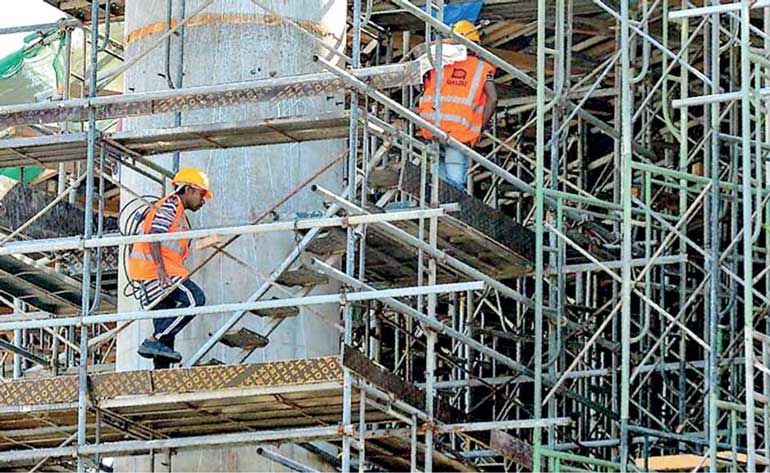Friday Feb 20, 2026
Friday Feb 20, 2026
Wednesday, 4 December 2024 00:20 - - {{hitsCtrl.values.hits}}

VAT payments in the construction industry work in strange and sometimes unfair ways
 Some Inland Revenue Department (IRD) officers have misunderstood that contractors’ bills have been settled as per their satisfaction. This is a myth, because although a portion of contractors’ dues have been paid by previous Governments, these bills have been stagnant for two or three years. By that time, bank interests have eaten up all of their profits and have pushed them towards great losses. Further, many bills remain uncertified and these have not been settled for contractors. In such a context, some IRD officers have quoted statements regarding the settlement of these old dues to pursue contractors for tax payments within unreasonable time periods.
Some Inland Revenue Department (IRD) officers have misunderstood that contractors’ bills have been settled as per their satisfaction. This is a myth, because although a portion of contractors’ dues have been paid by previous Governments, these bills have been stagnant for two or three years. By that time, bank interests have eaten up all of their profits and have pushed them towards great losses. Further, many bills remain uncertified and these have not been settled for contractors. In such a context, some IRD officers have quoted statements regarding the settlement of these old dues to pursue contractors for tax payments within unreasonable time periods.
VAT payments in the construction industry work in strange and sometimes unfair ways. For example, clients sometimes refuse to pay the SSCL levy to contractors. SSCL is also not applicable for many projects like foreign funded projects, some sports activity projects and some infrastructure projects. Yet, what happens is, tax is calculated as 2.5% of total turnover for which we are not liable. SSCL levies are issued for all of this, with penalties and the issuance of VAT certificates are stopped, without which contractors cannot collect payments, even to pay the IRD.
Further, regarding the 18% VAT, it should be noted that for some contracts, contractors do not receive VAT for the advance. Some projects, the VAT amount is paid months later, although the IRD calculates from initial stages, applies penalties and ceases bank accounts.
These procedures are fair if the construction industry is a smoothly running industry. But that is not the case at all, given that for almost half a decade the construction industry has been suffering from price escalation, high bank interest due to payment delays, the extensive costs that contractors had to bear to sustain their companies through the pandemic period, preliminary costs incurred during time extensions, loss of critical financial, equipment and human resources, operational and statutory obligations, debt obligations, inappropriate regulations and policies and many more issues, which cannot be covered here.
Therefore, we request that the IRD provides some flexibility for contractors until the industry stabilises.